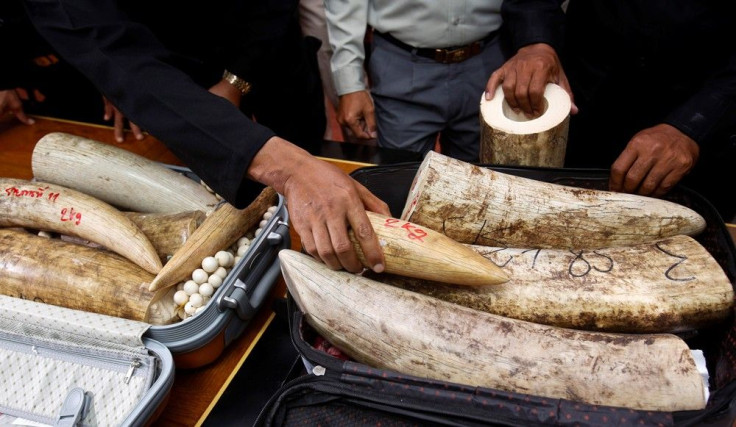Beer From Rhino Horns: 3-D Printing For A Chinese Brew Can Cut Down Rhino Poaching

Rhinos are being hunted down in numbers for their horns, believed by Asian culture to possess medicinal properties. However, a new biotech company claims that 3D printing fake rhino horns could solve the problem of rampant rhino poaching.
Pembient, a San-Francisco based biotech firm has managed to create synthetic rhino horns that carry the same genetic fingerprint as the actual horn, according to a report from Co.Exist. Their first product will be beer brewed from the fake horns, which is expected to be available in the Chinese market this year.
The fake horns can be used to make anything from skin creams to the brewed beverage. According to the report, rhino horn has the potential to cure hangovers and in some Asian cultures, it can be turned into homemade booze.
Fake rhino horns will be made from keratin and a small amount of rhino horn DNA. With those ingredients and some tweaking inside the laboratory, the company will be able to generate a powder, which will then be 3D-printed to create the solid horn.
According to a report from Quartz, Pembient
Meanwhile, some non-profit organisations believe that having 3D printed rhino horns that look identical to the real ones can be a bad thing as it makes it hard for law enforcement agencies to distinguish a poached product from a lab-made one. To go around this concern, Pembient is looking into placing a DNA watermark to the lab-made horns for easy identification.
There is also the argument from non-profits that mass production of fake rhino horns will fuel the demand for the real thing, to which Markus responds "if you look at artificial Christmas trees, they did not lead to a surge in real Christmas trees.” It was reported that the product will be available as a powder and solid horn form and will cost one-eighth of the price of the genuine horn, which is $60,000 per kilogram.
To report problems or leave feedback on this article, email: wendylemeric@gmail.com.






